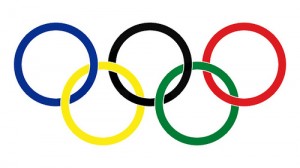Objective:
This is a great activity to get the students engaged through interaction and competition. Let’s face it, there is very little interesting about grammar so I’m always trying to figure out a way to get them to understand the topic with out realizing they are learning. It’s called the Superlative Olympics but you can also use the comparative to compare students with each other. The students will compete in several events to win gold, silver and bronze medals based on their performance. I’ll explain in more detail in a moment.

Set up
After just a brief introduction to comparative and superlative adjectives it’s time to set up the activity. Divide the class into groups of about 3-4 students. Let them choose a country they are going to represent in the Olympics. Try not to be offended if no one chooses your native country. Next, hand out a prepared work sheet that should include a table with four columns. First column will have the events and the other three will be for the names of the gold, silver and bronze winners in each category. For each event each team will elect one student to participate and they will come to the front of the class and either sit or stand depending on what the event calls for.
The Events
You’ll want to create events that contain a variety of adjectives that can then be later used to compare medal winners. After each event have the students fill out their worksheet with the names of the students who came in first, second and third winning gold, silver and bronze respectively. Here is a list of some that I’ve included with a short description for any that aren’t self explanatory.
Tallest student: self explanatory
Shortest student: self explanatory
Oldest student: self explanatory
Youngest student: self explanatory
Highest jumper: have the students jump one at a time and judge who jumped the highest.
Funniest: Have each student tell one joke and see who is the funniest or see which student can make you laugh the quickest.
Longest hair: self explanatory
Fastest reader: One at a time have the students read a short passage out loud and time them with a stop watch.
Quickest mathematician: Prepare a short math quiz of 4 questions and see who can do them the quickest.
Fastest drinker: Give each student small bottle of water and see who can drink it the fastest. (this one is the biggest hit)
Best basketball player: Crinkle up a few pieces of paper and have a basketball shooting competition into the dustbin.
Best drawer: self explanatory
Most intelligent: Prepare a 10 question quiz based off vocabulary, general knowledge or grammar from prior units. (great for review)
Best memory: I use flash cards and show a series of animals and have the students try to remember the order.
After the events
You can actually do this at the halfway point so that you keep the fun/study balance because depending on the class the events might take up a full hour. Whenever you feel it’s a good point for a break you can go back and start asking the students to make superlative statements about the gold medal winners and comparative statements about the others. For example if Jane wins gold in fastest reader, Steven wins silver and Marcus wins bronze you can elicit a superlative statement from those results. Students should be eager to state that Jane is the fastest reader while Steven is a faster reader than Marcus. You can even challenge them to compare Marcus to Steven and they must use the opposite adjective, in this case, slower. Here they are learning and probably not even realizing it!
Possible problems:
There are a few things to watch out for when doing this activity. For example, the basketball game. Throwing crinkled up pieces of paper into the trash and then quickly picking them out is something that westerners probably don’t think twice about doing but I learned my lesson on the first shot when I pulled a piece out of an empty dustbin the entire class said “ewwww.”
Also, if you’re teaching in Indonesia or any Muslim country, don’t do the drinking competition during the fasting month of Ramadan. That won’t go over well.
This is quite an active lesson so it has the potential to get out of hand if you have an especially active class. From the beginning you can state that teams can be disqualified from events or lose a medal if they are too rowdy. It’s nearly impossible to get them to stay in their seats so give them space.
It was a great one to do…I’m Iranian so I work in Iran consequently omitting the “Drinking Part”because of Ramadan month I will try this tomorrow in my class with teens…
Thanks a lot